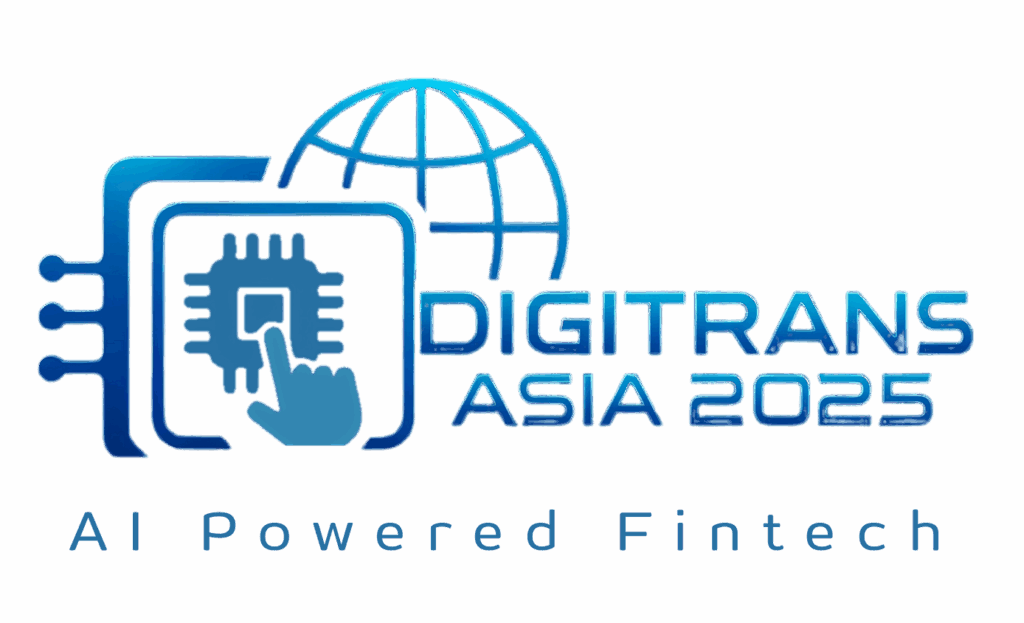Introduction
Southeast Asia is experiencing a digital financial revolution and Indonesia stands at the forefront. With a massive young population, soaring smartphone penetration, and bold regulatory strides, Indonesia is leading the region’s fintech transformation. As we prepare for Digitrans Asia 2025 in Jakarta, it’s clear that the country isn’t just keeping pace with fintech trends—it’s defining them.
1. Indonesia’s Digital-First Economy and Market Scale
Indonesia, the world’s fourth most populous nation, is uniquely positioned for fintech dominance:
-
60% of its 270+ million people are under 40, making them highly receptive to digital services.
-
Smartphone ownership surpassed 100 million in 2024, creating a fertile environment for app-based financial solutions.
-
Mobile-first behaviors fuel adoption of e-wallets, P2P lending, and Buy Now, Pay Later (BNPL) services.
The result: a 19% year-on-year growth in Gross Transaction Value for digital payments, according to e-Conomy SEA 2024.
2. Financial Inclusion Powered by Innovation
Indonesia’s fintech sector is not only growing, it’s growing with purpose. Despite economic progress, the World Bank estimates over 50 million Indonesians remain unbanked, particularly in rural or low-income areas.
This gap has created a powerful opportunity for innovation. Fintech platforms like OVO, DANA, LinkAja, and Akulaku are designing services that make banking and lending more accessible. From e-wallets and microloans to Sharia-compliant financial services, fintech companies are tailoring their offerings to meet local cultural, economic, and religious needs.
These innovations are giving millions their first access to financial services—empowering people to build credit, receive remittances, start businesses, and participate in the formal economy.
3. Progressive Government Support and Smart Regulation
Unlike many markets where regulation follows disruption, Indonesia has adopted a forward-thinking regulatory stance that balances innovation with governance. The Financial Services Authority (OJK) and Bank Indonesia have created sandbox environments that allow startups to experiment under monitored conditions before full-scale implementation.
This proactive regulatory ecosystem has birthed groundbreaking initiatives like:
-
QRIS (Quick Response Code Indonesian Standard): A unified national QR code system that enables seamless, cashless transactions across merchants, banks, and platforms.
-
Digital Rupiah Pilot: A central bank digital currency (CBDC) initiative aimed at modernizing the monetary system and enabling more secure, efficient payments.
-
Cross-border QR connectivity: Payment linkages with Malaysia, Singapore, Thailand, and the Philippines enable Indonesians to travel and transact regionally using local apps.
These developments have not only fueled domestic fintech adoption but positioned Indonesia as a regional fintech integrator—connecting economies and fostering financial interoperability.
4. Explosive Growth in Digital Finance Sectors
Indonesia’s fintech journey is multi-faceted, touching nearly every aspect of financial services.
Digital Payments:
Digital payments are leading the charge, with transaction volumes growing rapidly year over year. According to e-Conomy SEA 2024, Indonesia saw a 19% increase in digital payment transaction value, with QRIS adoption playing a major role. Initiatives like cross-border QR standards are further enhancing convenience for users and merchants alike.
Digital Financing & P2P Lending:
Peer-to-Peer (P2P) lending platforms have flourished, helping small businesses and individuals access capital quickly—especially in areas underserved by traditional banks. Similarly, Buy Now, Pay Later (BNPL) services are growing in popularity, especially among young, e-commerce-savvy consumers. The OJK has responded with clear rules to cap daily lending rates and protect users from predatory practices.
Alternative Credit Scoring:
Millions of Indonesians lack formal credit histories. In response, fintech companies are using alternative data such as mobile usage, bill payment history, and online behavior to create new credit scoring models. In 2024, OJK introduced new licensing frameworks to govern these providers, ensuring ethical data use and financial stability.
Digital Financial Assets & Crypto:
Indonesia is also embracing the future of finance through regulated crypto services. As of January 2025, the supervision of crypto assets transitioned from Bappebti to the OJK, under the Financial Services Omnibus Law. The new framework ensures safer onboarding, minimum capital requirements, and better governance laying the foundation for a more stable and compliant digital asset market.
5. Strategic Partnerships & Investment Momentum
Indonesia has become a hotspot for global fintech investment, capturing over 40% of all VC fintech funding in Southeast Asia (2023–2024). Global giants like SoftBank, Tencent, and Sequoia Capital have invested heavily in Indonesian startups.
In addition, banks and fintechs are now collaborating, not just competing, co-developing digital banking products, improving customer service, and expanding reach. These partnerships are accelerating digital transformation across Indonesia’s financial landscape.
Conclusion
Indonesia is not simply adapting to global fintech trends—it is shaping them. Through a unique combination of mobile-first population, regulatory foresight, technological adoption, and inclusive innovation, the country is forging a new path for digital finance in Southeast Asia.
Whether you’re a startup founder, investor, policymaker, or tech enthusiast, there has never been a more exciting time to explore Indonesia’s fintech landscape. Join us at Digitrans Asia 2025 in Jakarta, and be part of the conversations and collaborations that will define the next decade of fintech.


